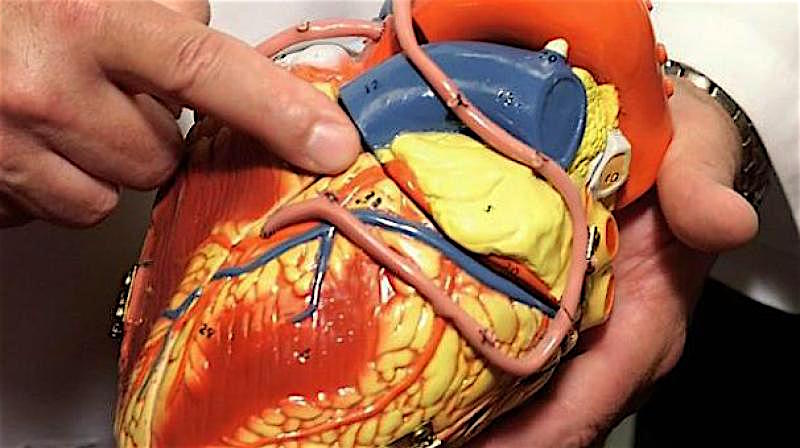 After 10 years of medical tests on more than 6,000 people in a federally funded heart disease study, researchers at Johns Hopkins Medicine and elsewhere have concluded that taking calcium supplements may raise the risk of plaque buildup in arteries and heart damage, although a diet high in calcium-rich foods appears be protective.
After 10 years of medical tests on more than 6,000 people in a federally funded heart disease study, researchers at Johns Hopkins Medicine and elsewhere have concluded that taking calcium supplements may raise the risk of plaque buildup in arteries and heart damage, although a diet high in calcium-rich foods appears be protective.
In their report, published Oct. 10 in the Journal of the American Heart Association, the researchers say the results add to growing scientific concerns about the potential harms of calcium supplements, and they urge a consultation with a knowledgeable physician before using them.
An estimated 43 percent of American adult men and women take a supplement that includes calcium, according the National Institutes of Health.
According to Erin Michos, M.D., associate director of preventive cardiology at Johns Hopkins, “When it comes to using vitamin and mineral supplements, particularly calcium supplements being taken for bone health, many Americans think that more is always better. But our study adds to the body of evidence that excess calcium in the form of supplements may harm the heart and vascular system.”
The researchers examined more than 6,000 adults enrolled in a long-term research project, the Multi‐Ethnic Study of Atherosclerosis (MESA). The participants, all between the ages of 45 and 84, were free of any Coronary Artery Calcification (CAC) — a risk factor for hardened arteries, or atherosclerosis. Ten years later the participants with higher levels of daily calcium intake were less likely to develop atherosclerosis. But when the researchers looked at people who obtained most of their calcium from supplements as opposed to diet, they found the exact opposite effect.
Taking total calcium intake and other factors into account, the researchers found daily calcium supplementation was associated with a 22 percent increased risk of developing CAC.
This discrepancy may arise from how different types of calcium are absorbed into the body.
Research elsewhere have shown that calcium supplements — particularly in older people — don’t make it to the skeleton or get completely excreted in the urine, so they must be accumulating in the body’s soft tissues.
“There is clearly something different in how the body uses and responds to supplements versus intake through diet that makes it riskier. It could be that supplements contain calcium salts, or it could be from taking a large dose all at once that the body is unable to process.”
“Based on this evidence, we can tell our patients that there doesn’t seem to be any harm in eating a heart-healthy diet that includes calcium-rich foods, and it may even be beneficial for the heart,” concluded Michos. “But patients should really discuss any plan to take calcium supplements with their doctor to sort out a proper dosage or whether they even need them.”
Nearly half of the participants reported some calcium supplement use, and women generally had a higher calcium intake than men.
Source: John J.B. Anderson, Bridget Kruszka, Joseph A.C. Delaney, Ka He, Gregory L. Burke, Alvaro Alonso, Diane E. Bild, Matthew Budoff, Erin D. Michos. Calcium Intake From Diet and Supplements and the Risk of Coronary Artery Calcification and its Progression Among Older Adults: 10‐Year Follow‐up of the Multi‐Ethnic Study of Atherosclerosis (MESA). Journal of the American Heart Association, 2016; 5 (10): e003815 DOI: 10.1161/JAHA.116.003815











